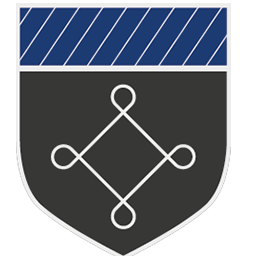Science
"Nothing in life is to be feared, it is only to be understood. Now is the time to understand more, so that we may fear less"
Marie Curie
Curriculum Intent
We believe all students deserve a Science curriculum that is ambitious and rich in knowledge. We feel strongly that we want to develop the mind set and skills necessary for pupils to be future scientists and critical consumers of scientific information. In line with the Trusts vision, we want all young people to ‘make outstanding progress’ through a science curriculum that aims to ignite and maintain pupils’ curiosity and promote skills of investigation, questioning and experimental techniques so students gain a good understanding of the world in which we live and develop an appreciation of the value of science in their everyday lives.
Careful consideration has been, and continues to be, put into developing the Science curriculum; the curriculum spirals and is planned and sequenced so that new component knowledge and skills build on what has been previously taught; revisiting key concepts areas throughout years 7 -11 is routine.
Students will be taught units of work that cover and go beyond the requirements of the national curriculum, and this should enable students to:
- Have an understanding of the world through the specific disciplines of Biology, Chemistry and Physics and understand how Science has changed our lives, continues to develop and is vital to the world’s prosperity.
- Develop a sense of excitement and curiosity about natural phenomena.
- Understand how science can be used to explain what is occurring, predict how things will behave and analyse causes.
- Develop a repertoire of ambitious vocabulary which aids the student’s knowledge and understanding not only of the topic they are studying but also of the world around them.
- Develop practical skills and their ability to make accurate and appropriate measurements to give students the opportunity to use a wide range of scientific equipment.
- Develop their ability to apply numeracy skills to analyse, evaluate and interpret data.
- Appreciate the vast range of careers that involve science and scientific skills.
Science has an important role in developing students’ cultural capital. Studying Science helps shape students’ sense of ethical values by giving them an opportunity to understand and discuss the impact of scientific developments on society. Learning about past scientists, the impact of their work and the struggles they had as examples of resilience and character; providing positive role models who had a growth mindset.
Some examples of key issues that are discussed are; nuclear energy, MMR vaccination, antibiotic resistance, genetic testing, genetic diseases, drug testing, nanotechnology, climate change, recycling and finite resources. Through discussion of key scientific matters, experiences gained from co- curricular, trips and talks to understanding the utility and broad application of science qualifications, knowledge and skills used in science, the department builds on students’ science capital.
Curriculum Content
Each department has carefully developed curriculum plans in line with our curriculum intent. The curriculum overview for each year group in this subject can be found below.


